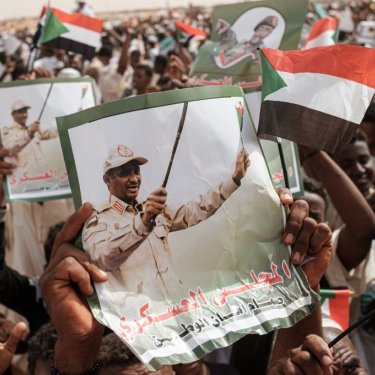Sudan : a dictator is gone but persecution of the media continues

As negotiations over the formation of a civilian-led transitional government continue to be stalled, Reporters Without Borders (RSF) calls on the military council currently ruling Sudan to break with the censorship and harassment of the media that characterized deposed President Omar Al-Bashir’s regime.
Bashir was ousted two and a half months ago, on 11 April, but his policy of constantly harassing independent media continues. After a slight respite, press freedom violations have resumed in recent weeks and critics of the transitional military council are systematically exposed to censorship or intimidation.
The Qatari TV broadcaster Al Jazeera’s bureau was closed without any warning or explanation on 30 May, and in recent weeks several journalists have been arrested and questioned by the intelligence services, before being released.
They include, Mohamed Latif, the head of Teeba Press, an organization that trains journalists, who has been summoned every day to the National Intelligence and Security Service (NISS) since 15 June. “At first, he was interrogated about the political situation in Sudan and his organization’s activities,” one of his colleagues told RSF. “Now he spends the entire day there without being asked any questions.”
Mobile Internet has meanwhile been completely disconnected since 10 June.
“The transitional military authorities have resumed the system of persecuting the media that prevailed under Omar Al-Bashir’s dictatorship, one that gave Sudan its extremely low ranking in the World Press Freedom Index,” said Arnaud Froger, the head of RSF’s Africa desk.“This policy is blocking Sudanese desires for an open public debate in which journalists are free to establish the facts and criticize the authorities. The complete restoration of Internet access throughout the country and an end to the arbitrary arrests of journalists and to the censorship policies being implemented by the security services are absolutely essential if the transition process is to succeed.”
Predatory militia
The bloodshed of 3 June, in which at least 128 demonstrators were killed and several journalists were injured, was largely the work of the Rapid Support Forces, a paramilitary group originally composed of Arab militiamen from Darfur. It is headed by Gen. Mohamed Hamdan (also known as “Hemeidti”), the transitional military council’s deputy chairman.
It was the Rapid Support Forces that denied at least six journalists access to the state television broadcaster, Sudan TV, for allegedly supporting the demonstrators. Sudan TV’s director has been fired and coverage of the protests and the activities of the Rapid Support Forces are now banned.
“This is a sign of a return to the old regime’s practices,” a journalist said, speaking on condition of anonymity. “The military are placing their men in the main public media outlets in order to discredit the dissenting voices and to steer the public debate against the demonstrators.”
Sudan is ranked 175th out of 180 countries in RSF’s 2019 World Press Freedom Index.



